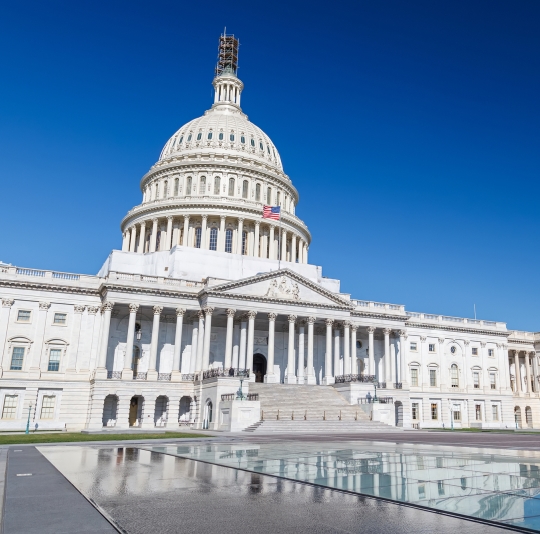Press Releases
Wexton Urges DHS to Enhance Use of Isotopic Testing Technology to Crack Down on Cotton Sourced from Forced Labor
Washington,
November 30, 2023
Washington, DC – U.S. Representative Jennifer Wexton (D-VA) sent a letter calling on Secretary of Homeland Security Alejandro Mayorkas to take action to strengthen U.S. Customs and Border Protection’s (CBP) ability to detect imported cotton that is sourced from forced labor using isotopic testing technology. The letter requests information about the agency’s current limited usage and high cost of testing and outlines the benefits of scaling up this tool to enforce the Uyghur Forced Labor Prevention Act (UFLPA). Wexton’s letter follows a new report by Reuters that showed that CBP’s current contract isotopic testing company has delivered positive results for cotton sourced from Xinjiang forced labor among imports, but has tested just 86 samples for an expense of $1.3 million. Wexton has pushed for measures to strengthen enforcement of the UFLPA, particularly concerning the fast-fashion giant Shein which reportedly just filed for a U.S. IPO. “With the obvious benefits provided by isotopic testing, it would comport well for DHS to significantly scale up its use of this tool in its UFLPA enforcement plan for the next six months as a test program. Stamping out forced labor supply chains is a moral and legal imperative, and DHS is the tip of the spear of U.S. efforts to root out forced labor and punish violators. I appreciate the challenges associated with this responsibility and stand ready to ensure that DHS can make measurable progress toward achieving the goals of the UFLPA,” wrote Wexton. Wexton’s letter requests a report detailing why isotopic testing has been underutilized in UFLPA enforcement, a review of the rates CPB is paying for testing and potential other competitive testing providers, and the existing degree of isotopic expertise and training among the DHS and CBP workforce. The full text of the letter can be found here and below:
November 29, 2023
The Honorable Alejandro Mayorkas Dear Secretary Mayorkas: As you are aware, Congress has provided significant resources to the Department of Homeland Security (DHS) to combat global forced labor supply chains and prevent consumer products produced with forced labor from entering the U.S. market. In particular, Congress appropriated funds specifically for the acquisition and use of new technologies like isotopic testing of cotton fibers and cotton containing products, which is an essential tool for catching contraband cotton at all stages of production. While invoices, bills of lading, and affidavits can be falsified and obfuscated, the unique markers found in Xinjiang cotton produced with force labor cannot. According to a recent report published by Reuters News Agency based on the information provided in response to a Freedom of Information Act (FOIA) request, since the Uyghur Forced Labor Prevention Act’s (UFLPA) enactment through May 2023, U.S. Customs and Border Protection’s (CBP) contract isotopic testing company tested a total of just 86 samples of apparel and footwear in three batches for a reported expense of $1.3 million. Reported results—which were presumably the result of advanced targeting—showed that 15 percent of the apparel tested positive for Xinjiang cotton. It is worth noting that these test results match almost exactly the same hit rate of Xinjiang cotton that CBP’s contract testing company self-reported from tests conducted on 1,000 randomly selected cotton apparel items at retail the previous year. If the Reuters report is representative of how isotopic testing is being employed as part of UFLPA enforcement efforts, I am concerned that this vital tool is being underused as well as inefficiently targeted. CBP’s toolbox of technologies like isotopic testing has been funded and should play a substantial, integral part of a proactive UFLPA enforcement regime. At the same time, the Department should engage with multiple testing vendors to boost testing capacity and drive cost savings, maximizing available appropriations. As a result, I would appreciate responses within 30 days to the following questions:
Additionally, I would request that CBP please provide my office with a copy of all information subject to the Reuters FOIA request in unredacted form. I also request that DHS conduct an extensive review of how isotopic testing has been utilized and how it can be deployed in a more comprehensive manner. This review should detail the number of batches sent for isotopic testing to date, the number of individual tests performed and the cost per test, the hit rate and types of non-compliance found, and an overview of the enforcement actions taken in each case that a UFLPA violation was identified. Please also include the feasibility of and costs associated with CBP acquiring isotopic testing equipment directly and establishing one or more in-house testing labs. I would request that DHS share the findings of this review with my office as soon as possible and provide us with an update on its status within 30 days. With the clear benefits provided by isotopic testing, it would comport well for DHS to significantly scale up its use of this tool in its UFLPA enforcement plan for the next six months as a test program. Stamping out forced labor supply chains is a moral and legal imperative, and DHS is the tip of the spear of U.S. efforts to root out forced labor and punish violators. I appreciate the challenges associated with this responsibility and stand ready to ensure that DHS can make measurable progress toward achieving the goals of the UFLPA. I greatly appreciate your timely response to the above requests.
### |



